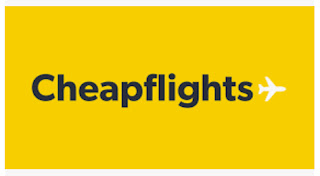Data Science class with DSN Nigeria and Outbox Hub Uganda
Outbox Hub
On the 4th of June 2022 OutboxHub in collaboration with the Data Science Network of Nigeria organized a Data Science class at their hub in Kampala, Solis House right on Lumumba Ave.
Outbox hub is a well known innovation and incubation center in Uganda that is devoted to training and equipping entreptreneurs with the skills to start, build and grow their businesses. Outbox Hub is currently led by Richard Zulu who leads a team of several individuals at the hub but also at Startup Uganda a group that combines all the major players in the Start up Ecosystem in Uganda.
OutBox hub has held several competitions in the past with the collaboration of companies like MTN, Stanbic Bank, United Nations Populations Fund and Google. They have an attractive Educations Program that hosts 3 month boot camps as well as Labs where non government organizations can learn how to create real social impact.
DSN Nigeria
Data Scientists Network, formerly known as Data Science Nigeria (DSN) is Sub-Saharan Africa’s leading Artificial Intelligence (AI) technology enterprise committed to building Africa’s AI talents ecosystem, and developing solutions for governance, education, health, retail, and finance. Their mandate is to raise 1 million AI talents in Nigeria and prepare them for the future of work, while developing Artificial Intelligence solutions to improve the quality of life of 2 billion people in emerging markets, accelerating AI start-ups and activating digital transformation for organizations in Africa.
Introductions and attendance
The class was led by a very capable team of leaders from Uganda who connected us to the resources that were provided by DSN Nigeria. OutboxHub’s EDU Lead is Rahma Nampala.
Matthew Murungi, Andrew Tugume, Jada Moureen Caroline and Collin Kabwama. As a prerequisite we were also asked to open a Kaggle Account as well as a Zindi Account. Kaggle is a subsidiary of Google LLC amnd is designed as a place where data scientists and machine learning enthusiasts can gather and share ideas. Zindi on the other hand is the largest network of data scientists in Africa.
The class started of with just a handful of people but went on to a whopping 80 or so attendees. These numbers were just about maintained until the end of the course which lasted five Saturdays.
The Sessions and the Hackathon
The first session was designed to get us familiar with the world of Data Science. The instructor (Mr. Tugume) was keen to have us understand that we are all often very engaged in the world of data. Its collection, its visualization and its analysis. A useful example that he gave was that of a tailor as he interacts with his client to create a clothing from a piece of material.
The diagram below is useful in helping differentiate between these subjects that all make up the greater subject of data science.
He also helped shed some light on the the various technologies that one would engage with in each of the different areas that make up the subject of Data Science. He laid a great foundation of knowledge in preparing us for the subject and also intorduced us to the best tools that we would use with in the day to day operations with data and data sets. He talked about Power Bi (Microsoft’s Data visualization took) as well as Google Data Studio (an online tool for converting data into customizable informative reports). Matthew Murungi on the other hand helped take us through the introduction to Python. From Single data, variables, groups of data, comments, conditions, loops and grouping instructions.
Miss Jada helped get us familiar with the the installation of Anaconda (distribution of the Python and R programming languages for scientific computing) and Jupyter Notebook (The Jupyter Notebook is an open source web application that you can use to create and share documents that contain live code, equations, visualizations, and text).
The last session was most intense and practical and was led by Mr. Collins Kabwama. Here we dealt with Types of Model Learning which were described as Supervised learning, Unsupervised learning and Reinforcement learning. Under Supervised learning we learned that you have linear regression, polynomial regression, decision tree regression and random test regression.
We were able to work with some data which in this case was a data set for real estate company. He talked about the preparation of data, building of models from that data as well as the final stage which is the communication of that data. Mr. Kabwama took us through the quite extensive process of data preparation which also had a component of data exploration.
The hackathon was a test of all of our knowledge and was a data set around vehicles for sale in Nigeria by region make and usage. We were supposed to come up with figures about the data relating to the cost of the vehicles and a model around those figures.




Comments
Post a Comment